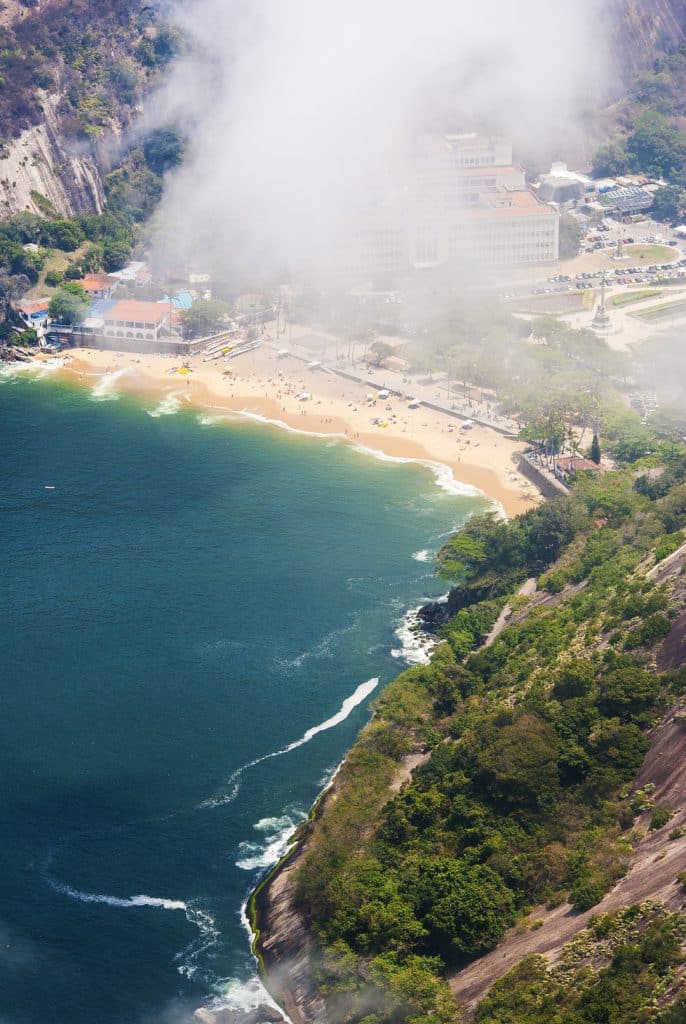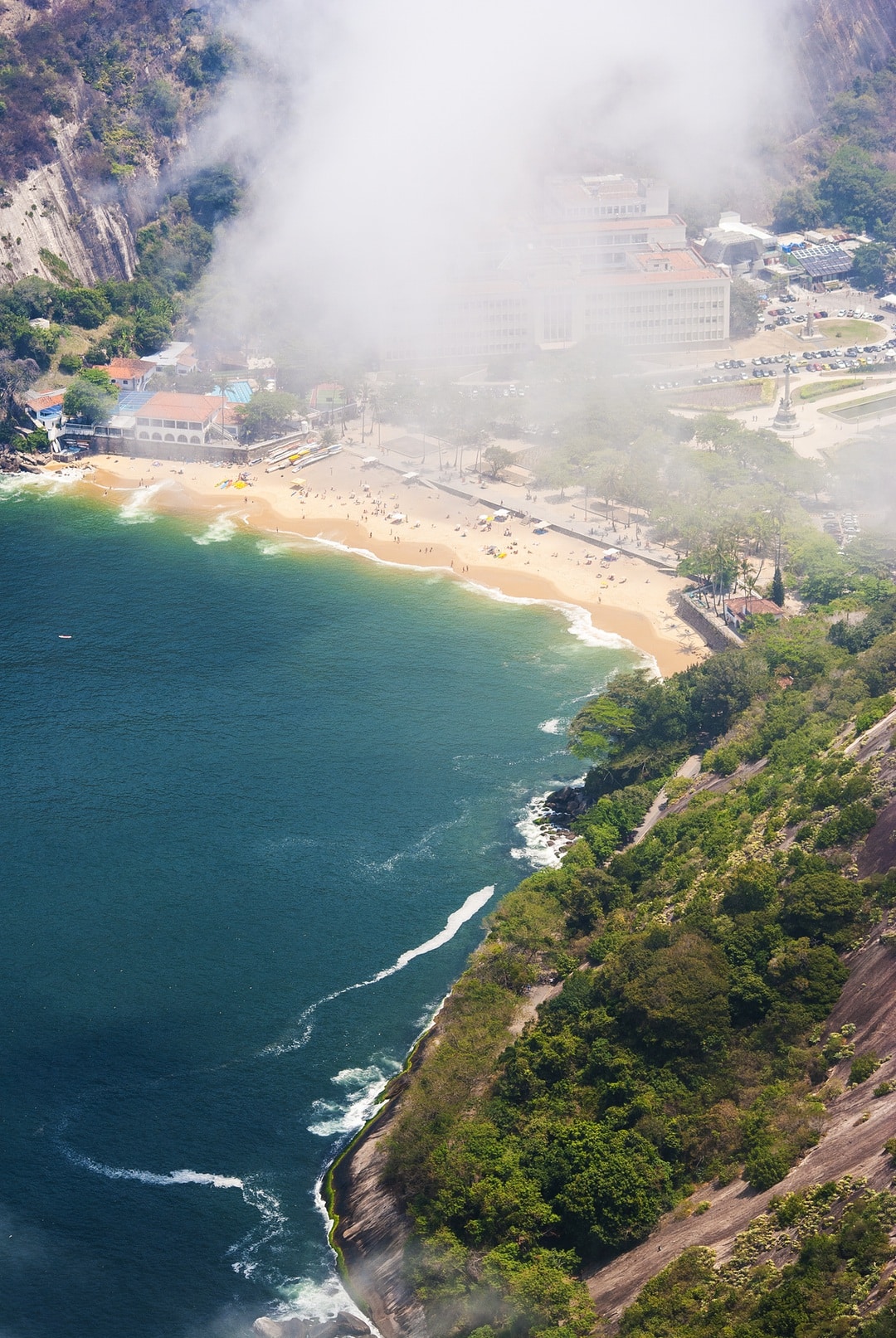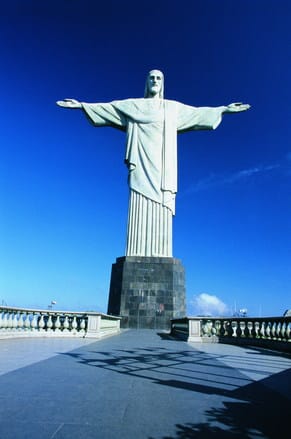
Situations in Rio de Janeiro create concern for Olympic Athletes
Shelby Snigar, Staff Writer
With the 2016 Olympics a little over four months away, concern for the athletes� health are rising as the environment in the developing country of Rio de Janeiro continues to get worse.
Not only has the Guanabara Bay and local lagoons become continually more bacterial contaminated, but an outbreak of the Zika virus has taken place.
During the two week games, over about 10,500 athletes from 206 countries will be competing for a medal and thousands of foreign visitors will be attending to watch the games.
The Zika virus has entered Rio de Janeiro within the past few months from infected mosquitos. The Zika virus is not only transmittable by a mosquito bite, but also through sexual contact, making the virus difficult to contain.
On top of this, according Bryan Altman from CBS Sports Radio, �only about 80 percent of those infected with the virus show symptoms.�
Rio de Janeiro’s Guanabara Bay in all of it’s original glory. Photo courtesy of unsplash.com
The virus harms fetuses by causing microcephaly, a birth defect of an abnormally small head, in newborn babies. Microcephaly can lead to an undeveloped brain or death.
Stephen Wade of Mercury News stated, �[there are] reports that visitors to Zika-infested areas might bring the virus home,� and quoted Anbritt Stengele, the president of Chicago-based Sports Traveler; ��now [the Zika virus is] becoming not just a Rio problem, but potentially a North American problem [too].�
As of now, women who are pregnant or women and men planning to have a child, are advised to stay away from Zika infected areas, commonly found in undeveloped countries like Rio.
Along with the Zika virus, the waste and trash that has polluted the Guanabara Bay and surrounding lagoons for a century is still concerning.
According to Jenny Barchfield of AP Winter Games, about two years ago, �nearly 70 percent of the sewage in the metropolitan area of 12 million inhabitants continues to flow untreated, along with thousands of tons of garbage daily, into area rivers, the bay and even Rio�s famed beaches like Copacabana and Ipanema.�
Some other waterways include the Marina da Gloria, Carioca River and Rodrigo de Freitas.
In 2009, Rio de Janeiro had promised about 80 percent of the pollution to be cleaned. One must keep in mind that all of the waste in the water has accumulated over a century and cannot entirely be fixed in a few years. As of today, most of the waste has gone untreated due to the little resources Rio de Janeiro has as an undeveloped country.
According to Bonnie D. Ford of ESPN and Brad Brooks of The Big Story, the Associated Press has investigated much of the waters and has found, �frightening levels of bacterial and viral contamination at and around Olympic venues,� that showed a, �spike in the bacterial fecal coliforms in the lagoon � to over 16 times the amount permitted under Brazilian law.�
However, even though the Associated Press and Mena have found the viruses to be just as high in levels both away from shore as well as on shore, the Associated Press has found the �bacterial levels at Copacabana [to be] in the acceptable range� [and are] nearly always fit for swimming.�
A reason to keep the awareness of the situations in Rio is from the reports of many athletes falling ill during their stays for test events. Some have had mild illnesses like diarrhea and the stomach bug, while others have had illnesses related to the severe case of Erik Heil.
Heil is a 26-year-old German Sailor who contracted MRSA shortly after participating in a test-event for the Olympics. According to Ford, �MRSA [is] a [flesh-eating], multiresistant bacterium that flourishes in hospital settings but also has afflicted some in dry-land sports. [The infection] carved a chunk out of [his] calf.�
Also, according to Brooks, �Athletes who ingest three teaspoons of water have a 99 percent chance of being infected by viruses.� Even so, there are plenty of athletes that have not contracted any diseases or illnesses.
This results in no real connections between the polluted waters of Rio and the illnesses found in the athletes.
In response, French said, �The bigger concern would be, if there�s something [a virus] that can get through mucus membranes.� If a virus gets through the membranes, that is when illnesses from the water would begin.
Mel Stewart, an American Olympic athlete quoted by Brooks, said in compliance to all of the concerns, �A gold medal is not worth jeopardizing your health.�
Cristo Redentor, the famous statue of Rio de Janeiro. Photo courtesy of freeimages.com
20 proposals have formed about ways to clean up the Guanabara Bay and other water ways� pollution. These proposals are, �intended to be low-cost, high impact and quick to implement,� according to Oliver Balch from The Guardian.
One proposal by the Plastic Soup Foundation promotes a way for citizens of Rio who pick up trash to be paid for their actions, concurrently creating an avalanche effect.
Another proposal was given by Royal HTC about a machine they had created to act as a way to accumulate the trash closest to the surface. All of the proposals are good and would be effective, however, Rio is in a state of financial crisis due to being an undeveloped country.
Around May 2014, Carlos Francisco Portinho, Rio�s state environment secretary, sent a letter to Aldo Rebelo, the Sports Minister, about the financial recession in Rio. According to Barchfield, Portinho�s letter reviewed the situation Rio faced in keeping the promise originally made in 2009.
Portinho requested $70 million in financial aid on the aspect of cleaning up the pollution. The $70 million would be put toward building two more River Treatment Units, in order for more trash and waste to be filtered from Rio�s waters. Ultimately, Rio continued to have money issues that have led to its greatest recession in near bankruptcy, and has slowed down any progress with the 20 proposals.
Quoted by Balch, Royal THC�s spokesperson, Marjolein van Noort said, ��We hoped that Rio would be a good case study to pilot this new technology, but the funding isn�t there.�� The Plastic Soup Foundation has also had to look for funding elsewhere.
Additionally, Balch quotes Yvon Wolthuis, �a sustainability expert and co-developer of the Clean Urban Delta Initiative, [who said], ��There�s so much happening in an urban bay environment like Rio that you can�t just rely on one governance model or technology to fix it.�
Even with financial issues, Rio has implemented a few quick-fixes to improve the water quality. Already, Rio has had mangrove trees planted in the waterways to filter out toxins from the polluted waters.
According to Ford, along with the trees, there are plans to build barriers in Rio that, �will hold back garbage that otherwise might drift into the paths of Olympic sailors,� as well as integrating, �a fleet of boats [that] will patrol to keep debris from snagging on a rudder or centerboard and costing someone a medal.�
According to French, �Planting mangrove trees is exactly the kind of thing that could help over decades, but not in five years.�
Biology Professor, Dr. Debo Nathaniel says, �Environmental problems are there decades, centuries, and would not take just a month [to fix].�
Nathaniel adds, �Environment problems should be seen as a global problem and not [just a] �you are on your own� [type of problem].�
With all the proposals and current solutions tying in with Rio�s water quality results and fears of the Zika virus, there is still a rising concern over whether the Olympic games will continue or be canceled and moved to another venue. The only group with the authority to cancel the Olympics is the International Olympic Committee. As of right now, the IOC president Thomas Bach said he has no intention of pulling the games this year.
Lastly, the athletes are advised to take precautions, along with strategies already in place for the Olympics.
Ford says, �Their oar handles will be bleached and their boats washed inside and out after each training session or competition. Gear will be laundered at a high enough temperature to kill microbes. �Track bites� � the nicks rowers get on the backs of their calves from their sliding seats � will be cleaned and covered to reduce the chance of infection.�
Along with those measures, athletes will be given small bottles of sanitizer and should shower immediately after all competitions. Athletes have also been counseled to get the hepatitis A vaccination, the typhoid vaccine and a polio booster before the Olympics in August, and then to see a doctor after the Olympics for a follow up.


